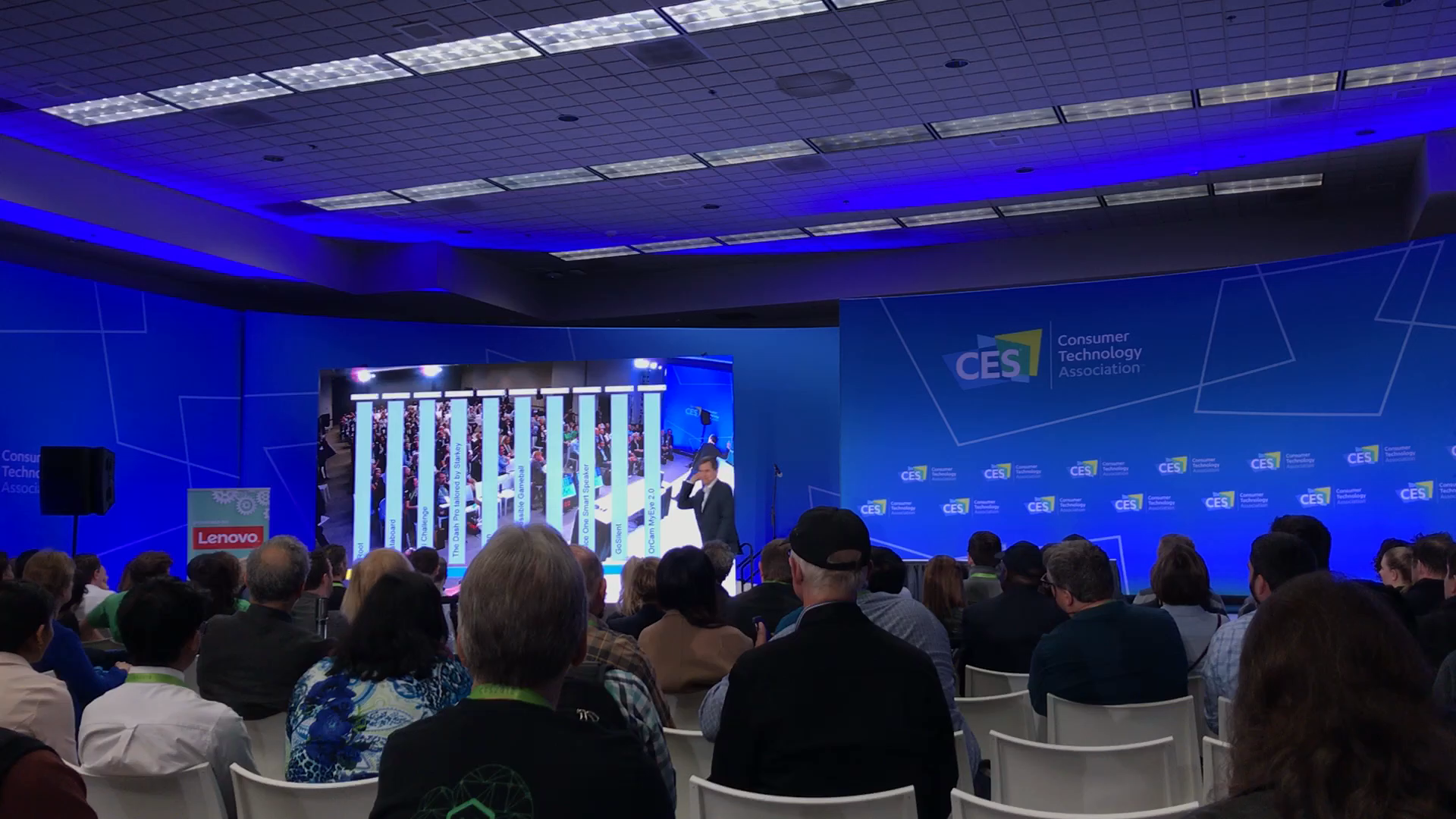“…If you had one shot, or one opportunity to seize everything you ever wanted – one moment…
Would you capture it or just let it slip?”– Lose Yourself by Eminem
8 Mile Soundtrack
The cliché often used during the playoffs is Win or Go Home in professional sports.
The best definition of a high-stakes presentation is Win or Go home. Here is an example.
I live outside of Las Vegas. And annually, one of the largest conventions in town is called the Consumer Electronics Show CES®.
If you ever get a chance to attend this conference, one must-see event is the Last Gadget Standing!
For 20+ years, Last Gadget Standing has been a competition of hopeful tech innovators and an audience of tech enthusiasts to determine the best cutting-edge product at CES. [1]
Last Gadget Standing pits ten products representing significant trends at CES into a competition to win the audience’s favor for “most likely to succeed,” measured via an Applause-o-meter.

In 2018, I got a chance to attend as a roving reporter for the National Speakers Association.
Think of it as the High-Stakes Presentation Olympics!
One competitor, a company, called Neurovalens, gave a pitch for their product Modius:
“Neurovalens is a technology company leveraging proven, innovative neuroscience and consumer wearables to create meaningful improvements in people’s lives. Their first product, Modius, is a non-invasive headset which helps people achieve leaner, healthier bodies through vestibular nerve stimulation.”
Do you know what vestibular nerve stimulation is without looking it up on Google? No, it’s not porn!
Frankly, I was puzzled about what this product did.
After the contest ended, I addressed the designer and expressed my confusion.
I shared with him what I thought Modius did:
“Modius helps people lose weight without diet, surgery or exercise.”
The inventor looks at me and says, “That’s a better way of saying it!” My description was ten words. The Modius pitch was 38 words, packed with a Jargon Jungle™ and a company description that nobody cared about.
In a previous article about marketing yourself, I remember the point was to grab and keep your prospect’s attention and only discuss the results they get by working with you.
The winner of that round of competition was a company called OrCam MyEye 2.0.
Here is their pitch:
“We help people with vision difficulties to read and see.”
- Read any text
- Recognize:
- Family
- Colors
- Currency Denominations
They demonstrate that their product works by having the audience provide different currencies from around the world and documents–which are read aloud over a microphone.
They were the clear winner with both their description and demonstration.
Point: One of the main elements of winning a high-stakes presentation is that your pitch is easily understandable, repeatable, and tweetable.
When you are in a win-or-go-home competition, it is assumed that your product or service can do the job.
The ability to get the job done is the minimum requirement. It is assumed. All the competitors can solve the client’s problem.
The question is, how can you distinguish your product or service in the mind of the prospect?
Counterintuitively, simplicity is your friend, and a Data-Dump or Jargon-Jungle™ are your enemies.
What is one takeaway that you can use to improve your high-stakes presentations?
[1] From the CES website: https://www.ces.tech/Articles/2020/Last-Gadget-Standing.aspx
#pitchdeck #highstakespresentations #businesspresentations #storyselling









